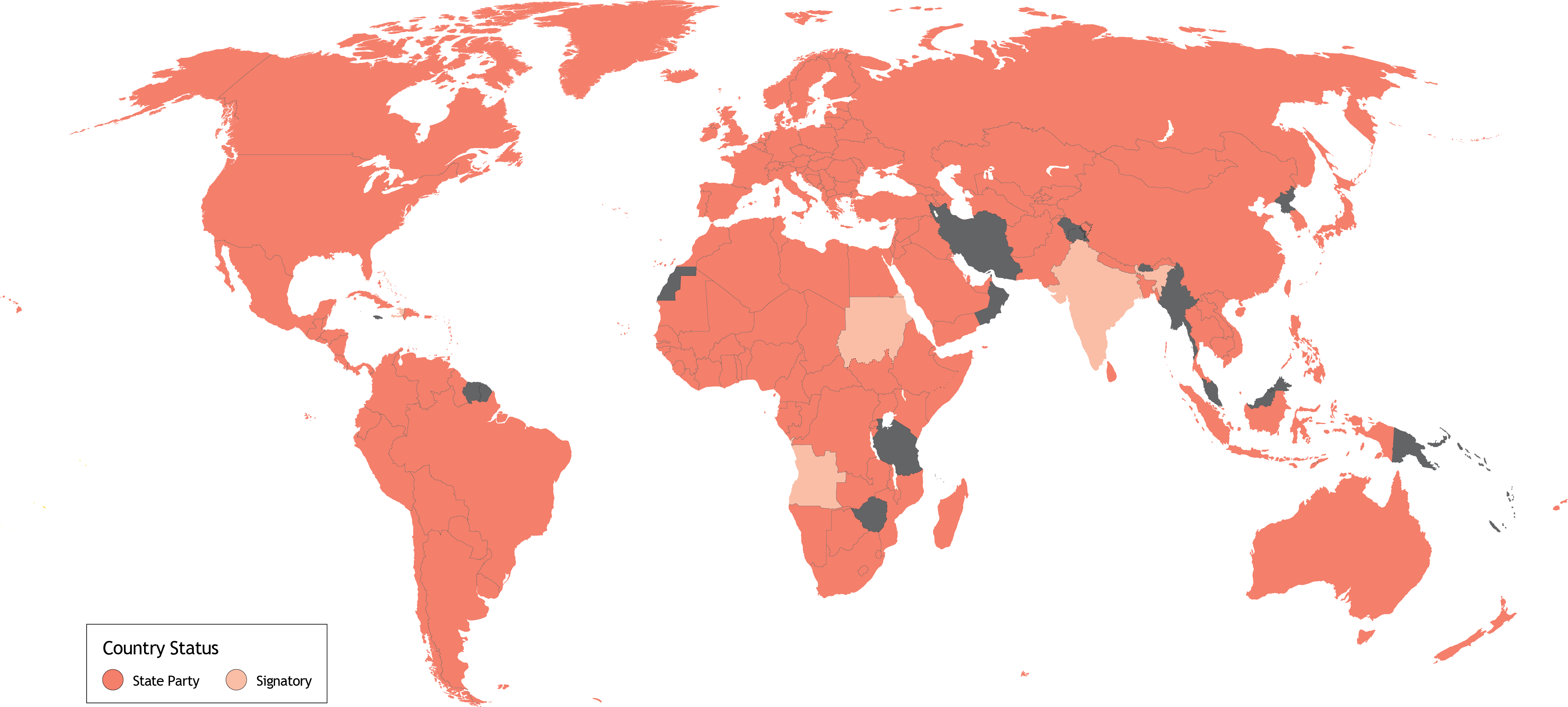The Convention against Torture

About the Convention
The United Nations Convention against Torture and Other Cruel, Inhuman or Degrading Treatment or Punishment entered into force on 26 June 1987. Its purpose is to prevent and eradicate the use of torture and other cruel, inhuman or degrading treatment or punishment and to ensure accountability for acts of torture.
There are currently 165 States Parties to the Convention and a further six signatories.
The Convention represents the most detailed international codification of standards and practices regarding the prohibition against torture. It sets out the most widely accepted definition of torture (Article 1) at the international level, obliging States to take all necessary legislative, administrative, judicial and other appropriate measures to prevent acts of torture, and specifies a range of additional steps that States must take to adequately prevent, prohibit and redress torture and guarantee non-recurrence. This includes:
- An obligation not to extradite, deport, expel or otherwise transfer a person to a State where they would be at risk of torture or ill-treatment (non-refoulement) (Article 3).
- The criminalisation of torture under domestic law (Article 4).
- Establishing universal jurisdiction over torture (Articles 5-9).
- Training officials and reviewing detention procedures (Articles 10-11).
- Ensuring that victims of torture obtain redress (Article 14).
- Ensuring that evidence obtained through torture is not used in any proceedings (the exclusionary rule) (Article 15).
Click here to read the REDRESS Guide to Reporting to the UN Committee against Torture.
Click here for a summary of the Convention against Torture.
UK Torture Review
REDRESS is coordinating and facilitating a joint civil society shadow report to the Committee against Torture to provide an alternative, fact-based view of the measures taken by the UK to implement its obligations under the Convention against Torture.
We will be holding in-person consultation events for civil society organisations across England and Wales as well as a call for written evidence throughout October 2018.
For more information and to submit evidence, please click here.
